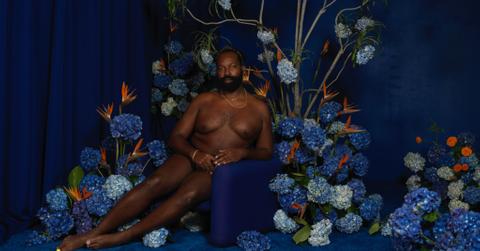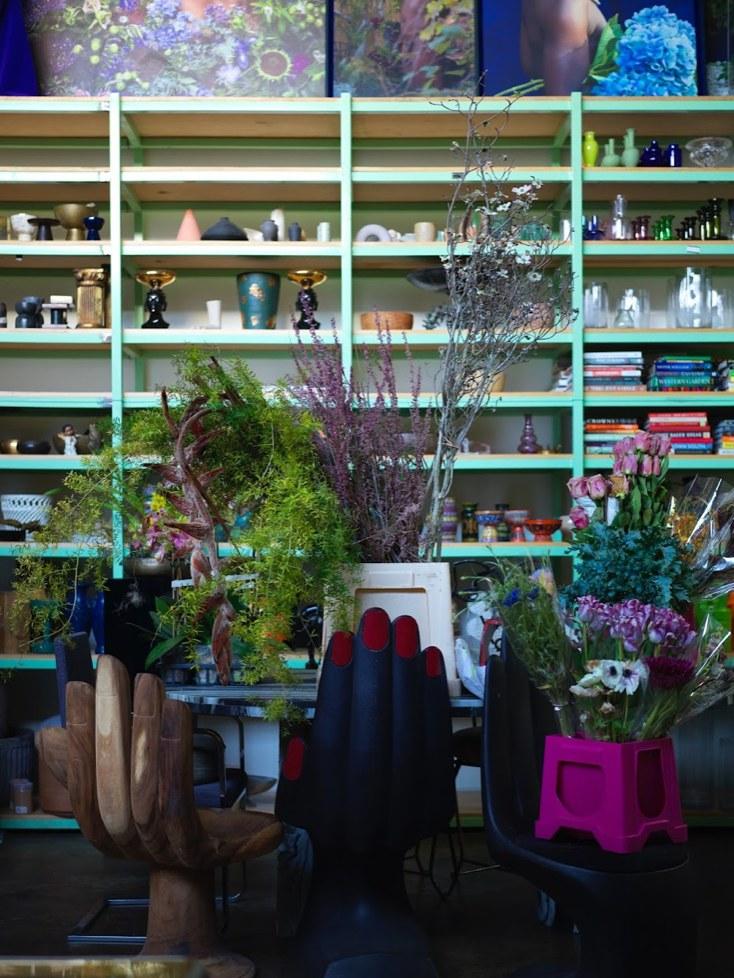
In Full Bloom: Maurice Harris, Founder of Bloom & Plume, Is Reimagining Flowers, Blackness, and Creative Freedom
Maurice Harris, the visionary founder of Bloom & Plume, is redefining floral design while exploring Black identity and radical self-expression through creativity. Discover how he’s reshaping the art world—one bouquet at a time.
By Dawn RoseJune 30 2025, Published 11:30 a.m. ET

Maurice Harris—floral artist, founder of Bloom & Plume, and creative visionary—has never been one to follow a traditional path. Instead, he’s forged a vivid, fragrant trail of his own, merging color, culture, and craft into something unmistakably his. Sitting down for an in-depth interview for the CREATIVES section, Harris shares how flowers became his chosen medium, how identity informs his art, and why consistency—and a bit of delusion—can carry a creative farther than they ever imagined.
Harris traces his roots to a childhood steeped in creativity. "My grandmother made church hats, and my mother and uncle were musicians," he says. Growing up in a deeply religious household, he recalls being more interested in watching his grandmother create than adhering to traditional gender roles. "I knew I wanted to be creative, but I was too scared to just be an artist, so I found creative hacks—window display work, for places like Barneys and Juicy Couture." However, those early experiences with visual merchandising unexpectedly brought him back to his floral beginnings. "I'd sneak into the flower market on my lunch break and play around. Then someone asked me to do their baby shower. Then a wedding. And eventually, I needed a business card. That was the birth of Bloom & Plume."
But Bloom & Plume isn’t just a floral studio. It’s a declaration. Harris's arrangements are bold, sculptural, unapologetically expressive—and deeply personal. "I chose flowers because I felt the industry hadn’t been touched. It was the same tight rose bouquets from the ’90s. I wanted to shake it up." For Harris, flowers aren’t just decoration—they’re a creative language. "Flowers speak. I’m just the vessel."
Still, Harris is candid about the struggles of turning passion into profession. "Youth and delusion worked in my favor. I didn't know what it really took to run a business." He recalls waiting two years to be laid off so he could collect severance and launch Bloom & Plume full time. Each year, he took a small leap of faith—hiring an assistant, renting a studio, buying a cargo van. "Consistency was key. I just kept going." He also understands the emotional toll of the grind. "When you feel like you’ve been putting in the time but nothing’s growing, it’s probably not true. You’re likely in hour 2,000 of your 10,000. Success is inevitable if you stay consistent."

Harris’s work often explores the intersections of Blackness, queerness, and self-expression. One standout project involved using florals to adorn the Black body—an effort to honor beauty often overlooked or misunderstood. "It started as a way to process my own pain and identity. People see flowers as beautiful and Black bodies as dangerous. I wanted to reframe that."
That same vision extended to Bloom & Plume Coffee, a short-lived but beloved café in Los Angeles. "It was an extension of my art practice. A place where people felt seen, cared for, and inspired." Though it eventually closed, Harris is clear: the spirit of the space lives on through his continued efforts to center beauty and community.
These days, Harris is leaning deeper into his identity as an artist. Photography, for example, has become a daily ritual. "I walk my dog every day, take my camera, and capture something I’d want to print. It’s a benignly creative act, but it keeps me grounded." He’s also behind the now-iconic phrase: "Capitalism doesn’t care about your creativity." The slogan—now merchandised—stems from his own frustration with commercial constraints. "I had dream jobs that weren’t dreams. It’s a job. They’re not paying for you to be your full creative self—they’re paying for a product. You need to have something that’s just for you."
When asked what legacy he hopes to leave, Harris doesn’t hesitate. "I want to revolutionize the way people look at flowers the way Starbucks did for coffee." He wants people—especially Black and working-class communities—to feel empowered to bring beauty into their everyday lives. "We are nature too," he says. "Flowers are like the ultimate expression of a plant’s being. That’s how I want to live—fully bloomed, unapologetic, vibrant." Maurice Harris isn’t just arranging flowers. He’s arranging a movement. One bloom, one bold stroke, one beautiful moment at a time.

